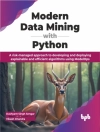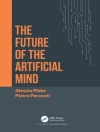More and more, software systems involve autonomous and distributed software components that have to execute and interact in open and dynamic environments, such as in pervasive, autonomous, and mobile applications. The requirements with respect to dynamics, openness, scalability, and decentralization call for new approaches to software design and development, capable of supporting spontaneous configuration, tolerating partial failures, or arranging adaptive reorganization of the whole system.
Inspired by the behaviour of complex natural systems, scientists and engineers have started to adjust their mechanisms and techniques for self-organization and adaption to changing environments.
In line with these considerations, Mamei and Zambonelli propose an interaction model inspired by the way masses and particles in our universe move and self-organize according to contextual information represented by gravitational and electromagnetic fields. The key idea is to have the components’ actions driven by computational force fields, generated by the components themselves or by some infrastructures, and propagated across the environment. Together with its supporting middleware infrastructure – available with additional information under http://www.agentgroup.unimore.it – this model can serve as the basis for a general purpose and widely applicable approach for the design and development of adaptive distributed applications.
Tabella dei contenuti
The Scenario.- Upcoming Information Technology Scenarios.- The Role of Coordination and the Inadequacy of Current Approaches.- Modeling Field-based Coordination.- Field-Based Coordination.- Co-Fields and Motion Coordination.- Implementing Field-based Coordination.- Commercial Off-The-Shelf Implementations.- Tuples On The Air (TOTA).- Advanced Applications.- Content-Based Information Access and Coordination.- Self-Assembly in Mobile and Modular Robots.- The Cloak of Invisibility.- Conclusions.
Circa l’autore
Marco Mamei is research associate at the University of Modena and Reggio Emilia, where he received the Ph D in computer science in 2004. His current research interests include distributed and pervasive computing, swarm intelligence, and multiagent systems. He is a member of the IEEE, AIIA and TABOO.
Franco Zambonelli is professor in Computer Science at the University of Modena and Reggio Emilia since 2001. He obtained the Laurea degree in Electronic Engineering in 1992, and the Ph D in Computer Science in 1997, both from the University of Bologna. His current research interests include: distributed and pervasive computing, agent-oriented software engineering, self-organization in distributed systems engineering. In these areas, he has published over 120 papers in international fora, co-edited 7 books, received several best paper awards, and has been invited speaker and tutorialist in several international conferences and workshops. He is a member of IEEE, ACM, AIIA, and TABOO.












